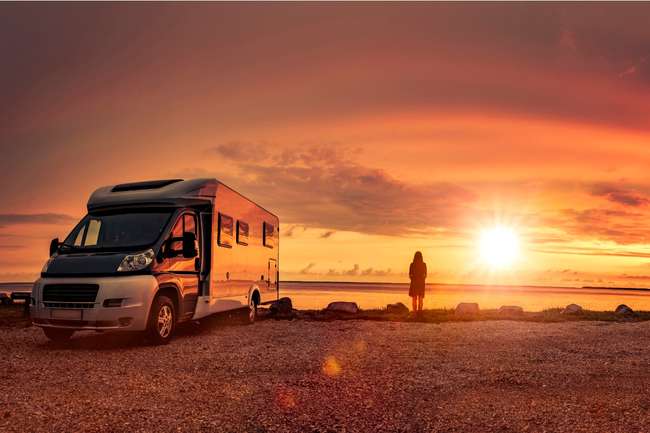We may earn revenue from the products available on this page and participate in affiliate programs. Learn More ›
Hit the Road
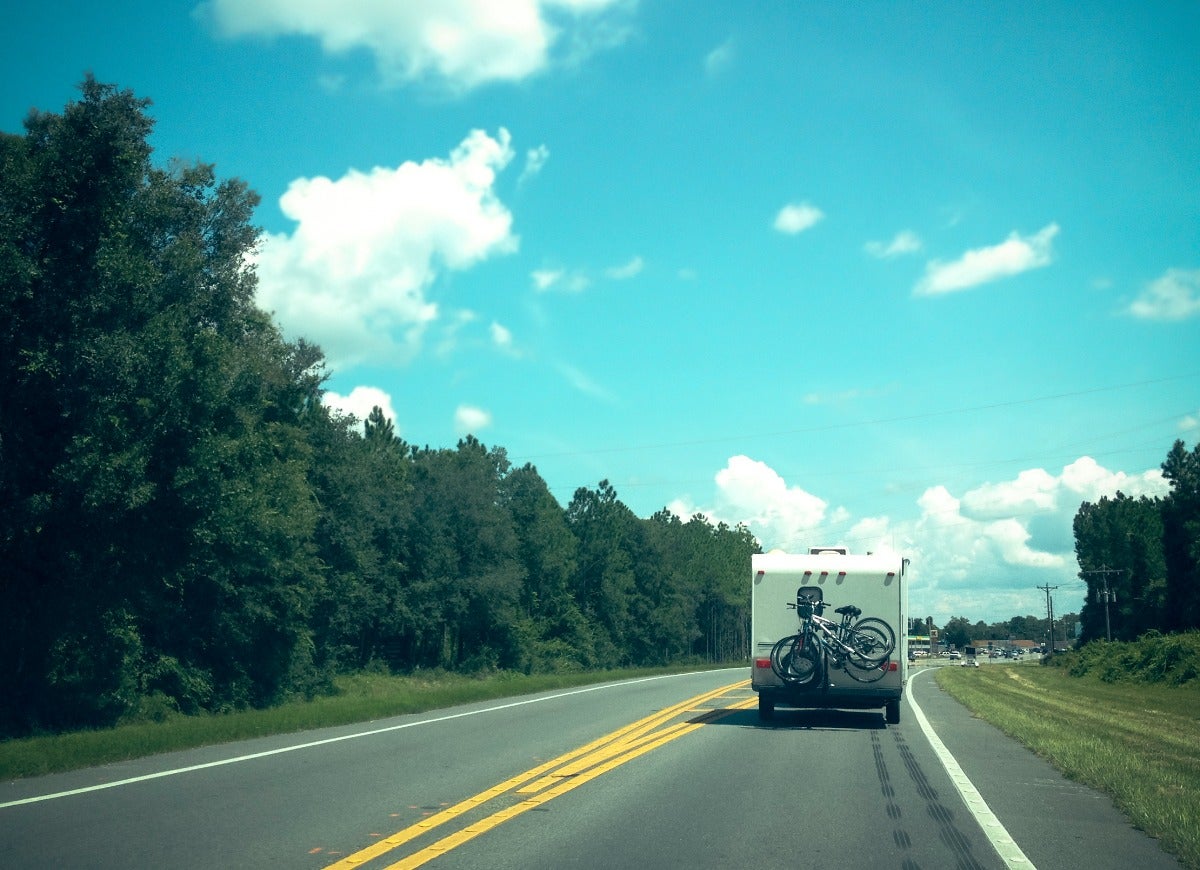
The COVID-19 pandemic has heavily impacted the travel industry in 2020, with overseas flights cancelled and even domestic trips becoming a challenge. One safer way Americans have attempted to indulge their wanderlust is with RV travel. In the second half of the year, RV sales have been booming. Because so many people are currently working remotely, it’s easier than ever to dream about leaving it all behind and living in an RV full time, but first-time buyers may not be aware of the challenges that come along with hitting the open road in a recreational vehicle.
Not All RVs Are Created Equally

Once you begin researching which type of recreational vehicle is best for you, it’s easy to become overwhelmed with how many different types they are. It’s important to do your homework and figure out whether a motorhome, campervan, travel trailer, popup camper, or truck camper best suits your lifestyle—and budget.
Towing Capacity Matters
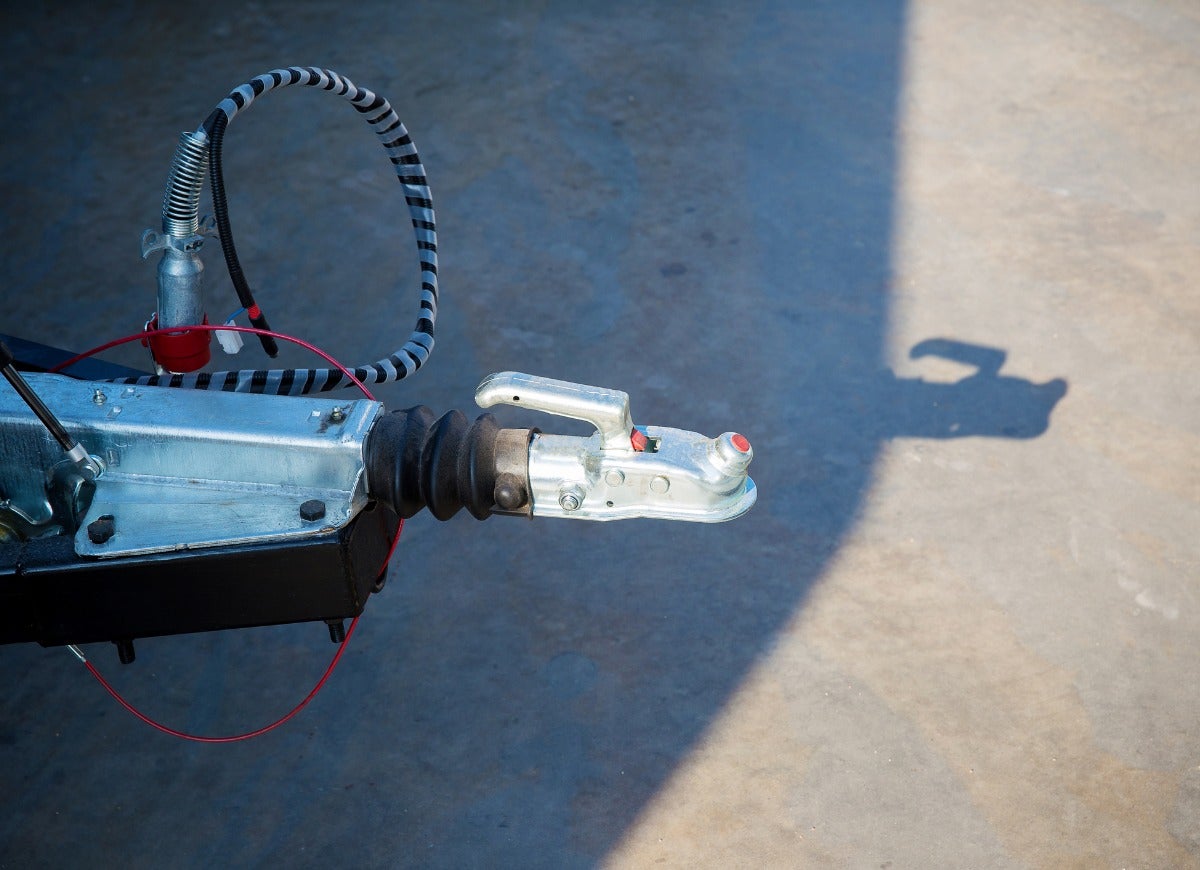
While some RVs are self-motorized, many need to be towed. Before you invest in a trailer of any size, it’s essential that you ensure your vehicle has the necessary towing capacity. A 2020 survey by Nissan showed that 28 percent of respondents were interested in purchasing a vehicle with towing capacity, showing that the RV trend is likely to affect all vehicle sales in the months to come.
You’ll Need Some Essential Tools
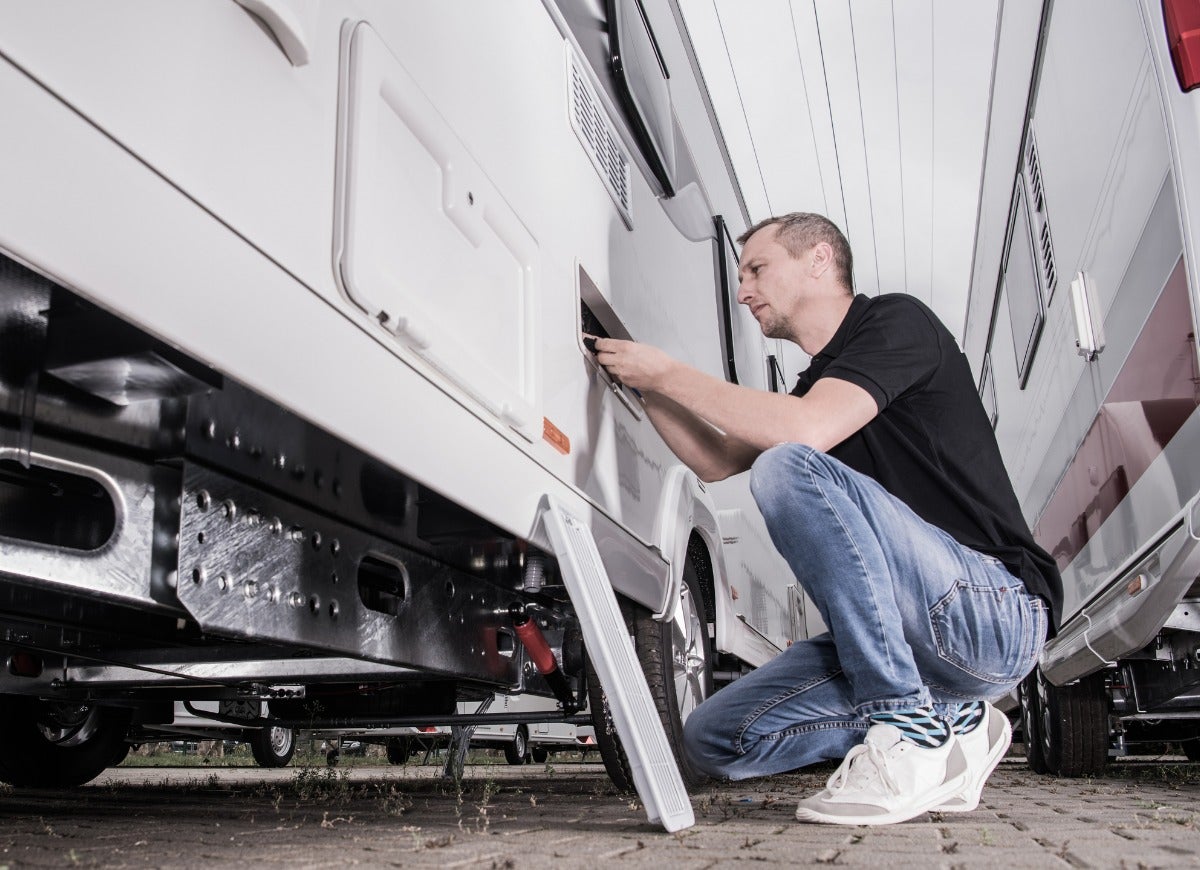
When you invest in an RV, it’s easy to assume that it will come equipped with everything you need. There are countless handy accessories you can purchase, and a few you shouldn’t go without. It’s a good idea to have a 4-way wrench set (available on Amazon) so that you’re able to tighten every bolt on your vehicle. It’s also important to monitor your tires when driving long distances, which is why investing in a digital tire gauge (available on Amazon) is key.
Measurements Matter
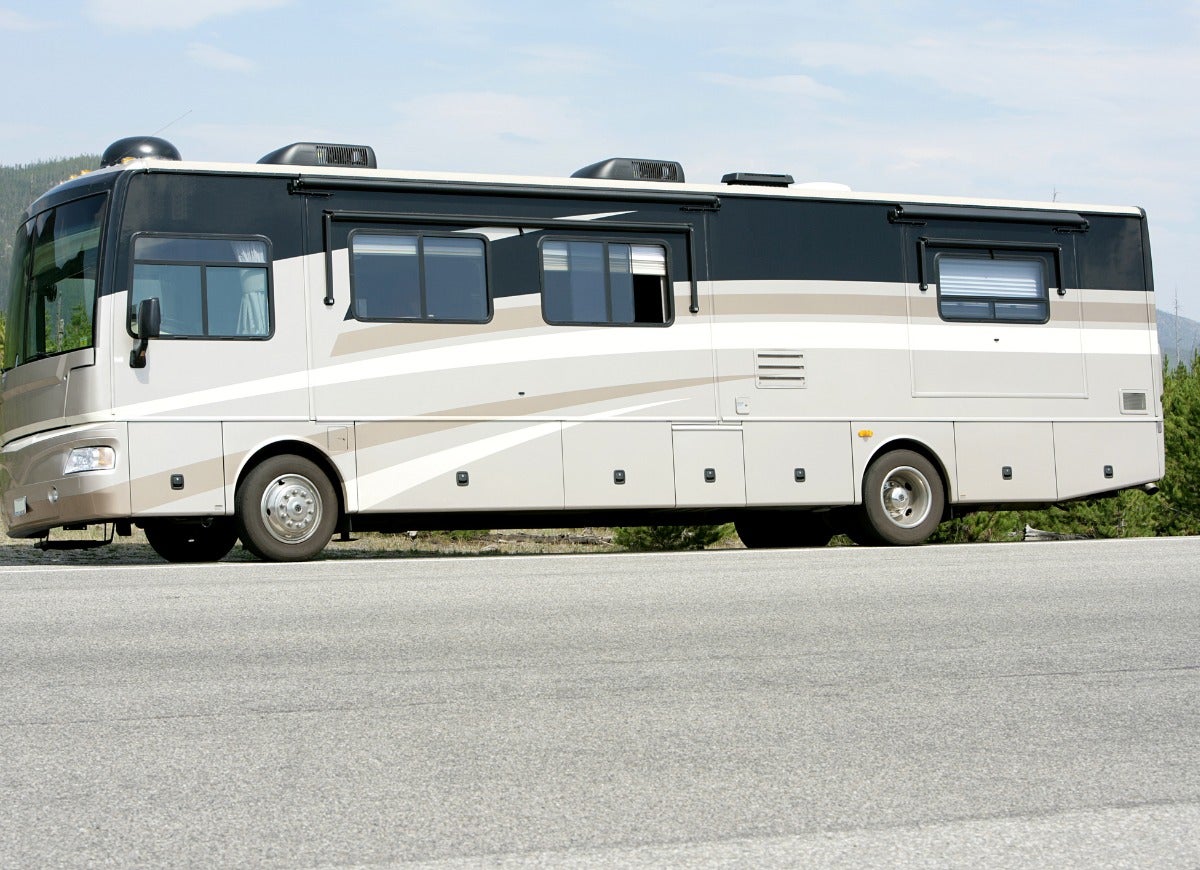
If you’re used to driving a sedan or even an SUV, having an awareness of the size of your vehicle is second nature. But the world isn’t designed for RVs, so it’s essential that you’re aware of your rig’s height and length before you start driving. Some bridges and tunnels are too low to accommodate larger trailers, so the total height of your vehicle should always be at the forefront of your mind.
The Importance of Each Onboard Tank
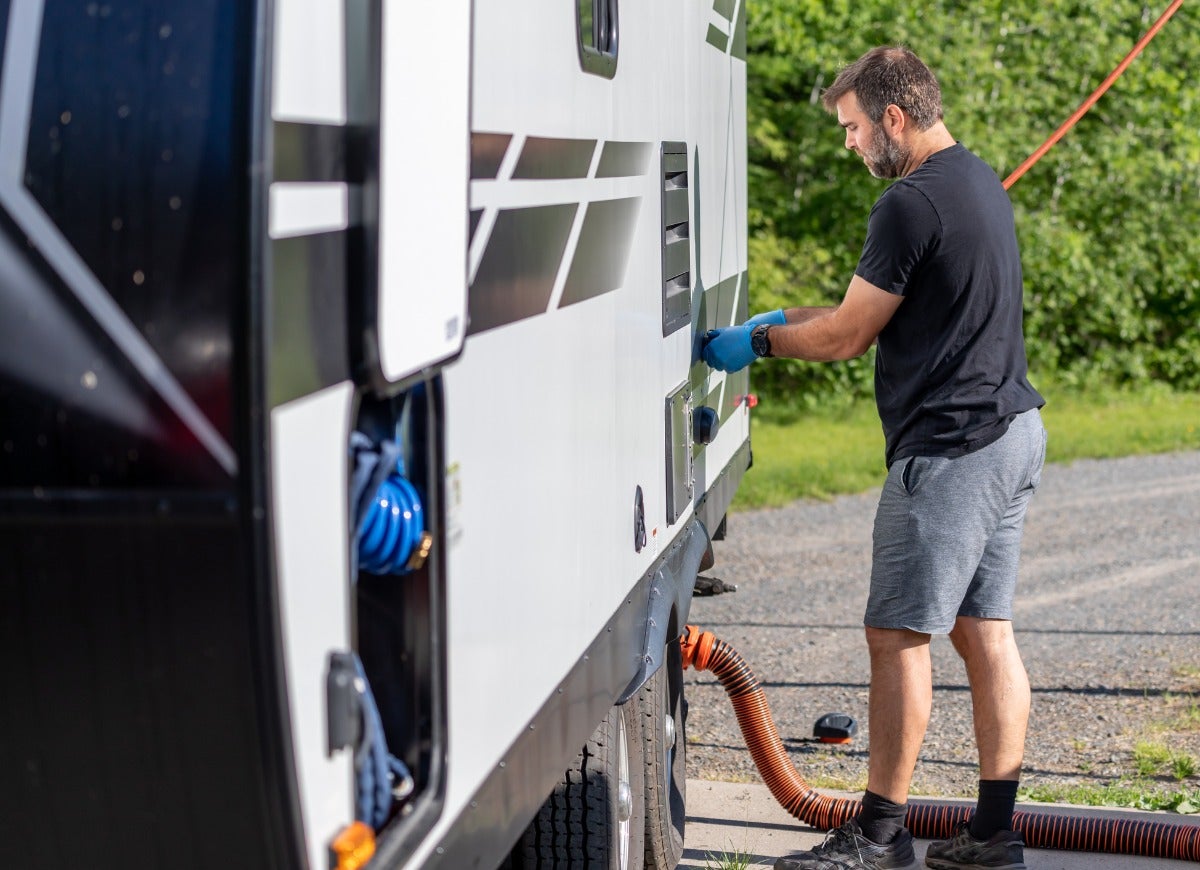
Most RVs come with three tanks, each with an essential purpose. The gray water tank is filled with runoff from the sink and shower while the black water tank is where your sewage ends up. The fresh water tank contains the clean water that comes out of your taps. It’s also important to have additional potable water on board in case of emergencies.
How to Plan Your Route

While you may have visions of hopping into your new RV and driving off into the sunset, it’s important to plan your route in advance. It’s essential that you use an RV-specific GPS system which will help you avoid routes with low-clearance bridges or tunnels. Allstays is a useful resource that lets you scout out the best RV-friendly campsites to stop for the night.
Related: 20 Weird and Wacky Destinations for a Family Road Trip
The Meaning of “Boondocking”
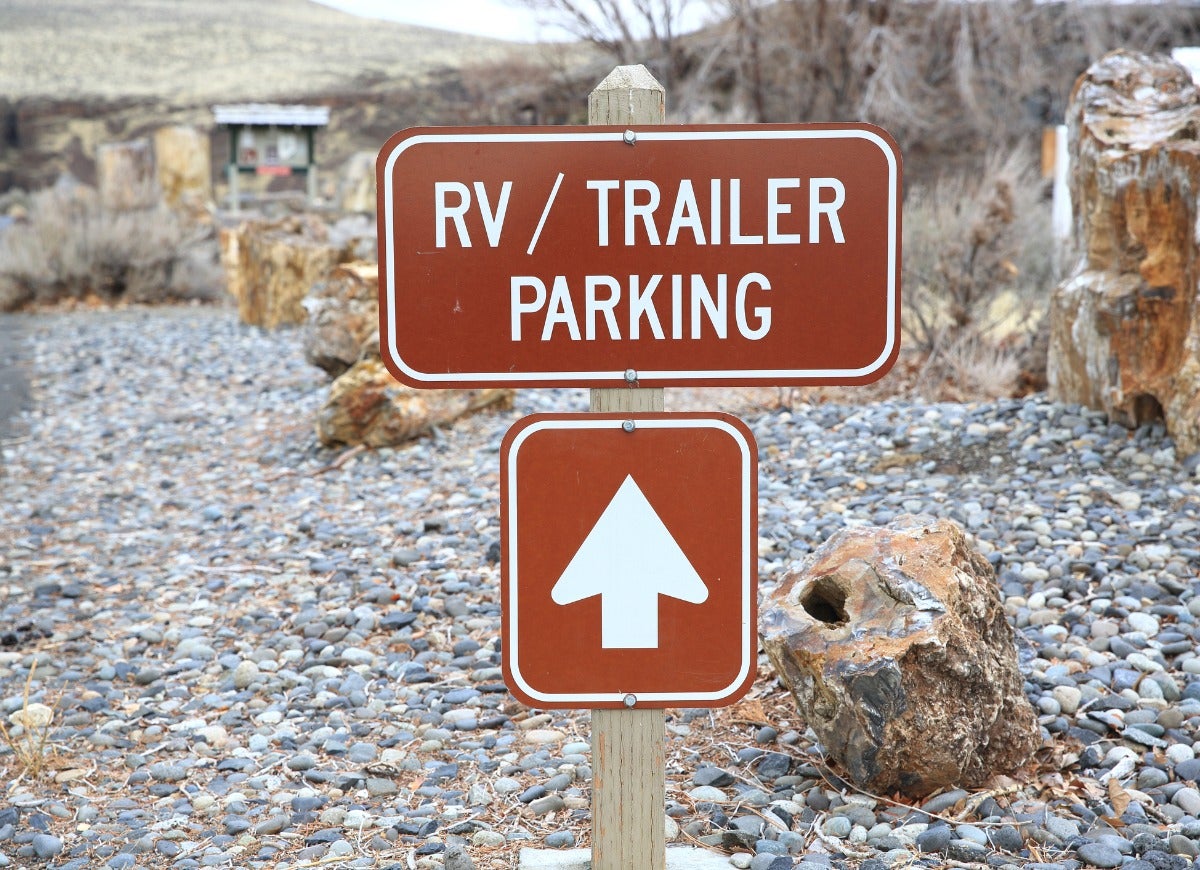
associated with RVs. “Boondocking”, for example, is the practice of setting up for the night in a spot that doesn’t have RV hookups. This can mean out in the wilderness, or even in a large parking lot. Those seeking a natural experience should look for public land regulated by the Bureau of Land Management.
Leveling is Key
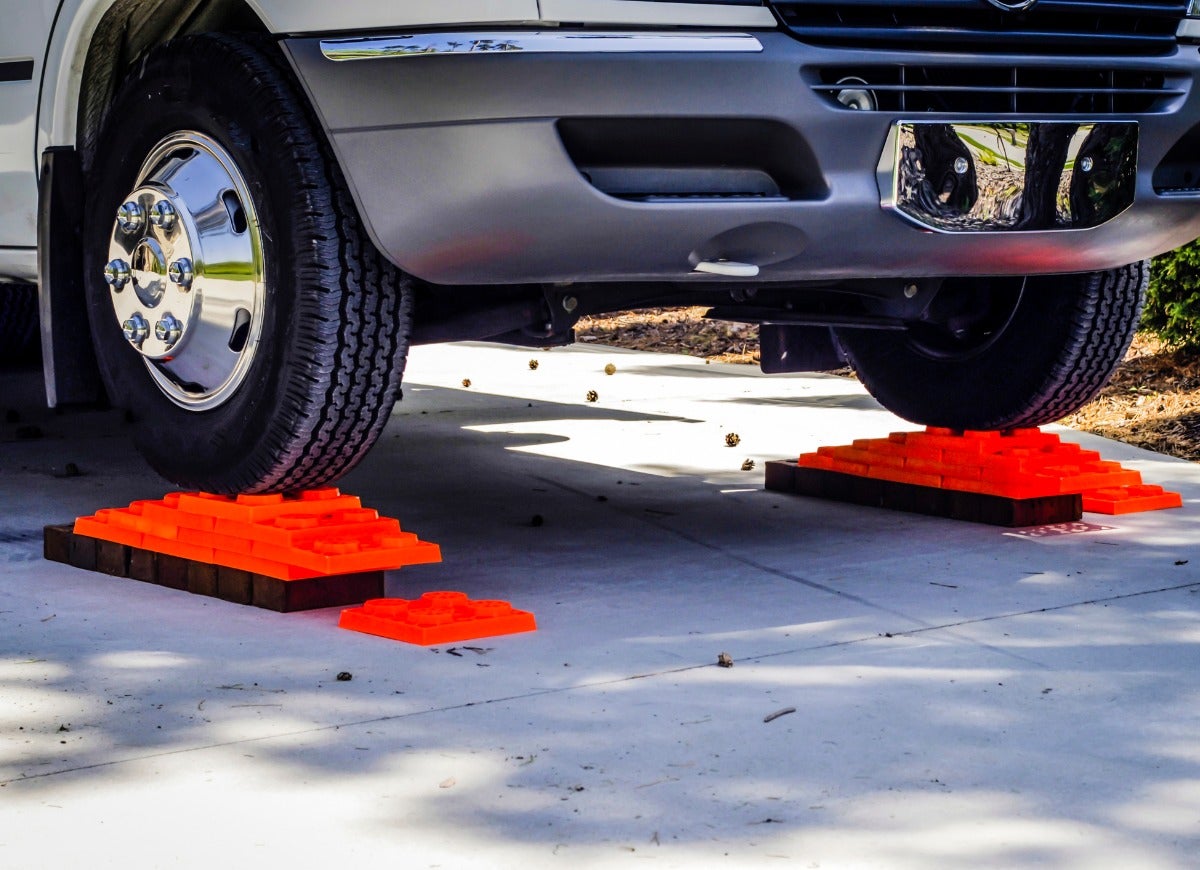
There are numerous things to take care of when you pull into your site at the end of a long drive, and one that beginners often skip is leveling. It’s essential that your trailer is balanced to prevent it from shifting in the night. While some high-end RVs have automatic leveling systems, others need to be leveled manually, in which case purchasing a set of leveling blocks (available on Amazon) is essential.
You Need Special Toilet Paper

The sewage system in your RV isn’t nearly as powerful as the ones you’ll find in most homes. This means you can’t simply use your regular toilet paper in your bathroom on wheels. Luckily, many brands make RV-friendly toilet paper (available on Amazon) that’s designed to disintegrate quickly in order to avoid clogging up your system.
Related: The Best Composting Toilets for Your Mobile or Tiny Home

Practical Gifts They'll Love
Our editors take pride in their gift-giving skills—and these are their top suggestions for DIYers, plant parents, new homeowners, and more.

